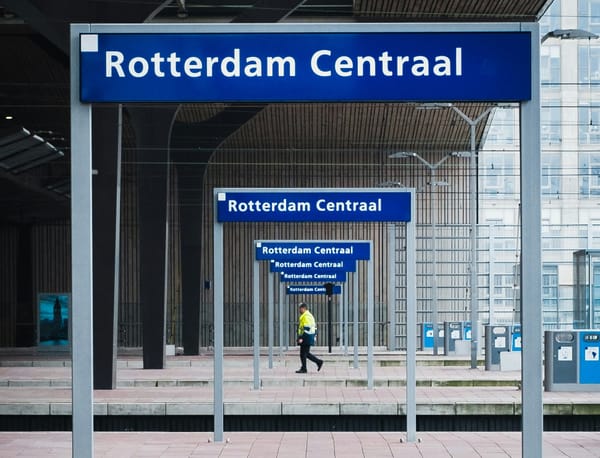Designed by TouchCast in New York, Oregon, India, Ukraine, Mexico, Romania, and the United Kingdom.
On Making Distributed Work Work

By 11am on a typical day, I’ve traveled the world. From the cozy confines of my 13-inch computer display, I’ve had chats across seven time zones about our product before finishing my second coffee. And to anyone who still thinks overseas has a negative connotation when paired with programmers, the trade winds are about to pull you out to sea.
My morning Skype conversations include talks with our lead designer in Portland, OR, who willingly springs to life by 6am his time to chat about UX flows; with our front-end engineer in India whose team hacks together a demo; with the Ukraine office to plot the next iOS sprints; with the our lead Flash programmer in Bucarest manging our PC product; with our system architect in Pueblo, Mexico; and with our budding office in London where we’ve launched our UK Studio. These are all dedicated, long-term employees and partners of TouchCast and our parent company bMuse. And I think of them all as my colleagues.
A distributed team has its downsides, most of which are predictable: mismatching time zones, language barriers, no central whiteboard or watercooler to convene. But these obstacles can be overcome, and should be as the perks are strong: for starters, 24-hour development means TouchCast is always working.
In a little over two years, we’ve come from a working prototype to deliver the world’s only real-time compositing tool for interactive video… for iPads, Windows-based PCs, and soon Macs, desktop browsers, iPhones and Android-based mobile devices. And we built a few video players too(native, SDKs and embeds) that cover HTML, Flash, iOS and soon Android so that TouchCasts can play anywhere, including YouTube with full interactivity.
Did I mention we spent a full year completely rewriting and redesigning that initial prototype?
Most startups wouldn’t get such a runway. We’re fortunate to have the bMuse support and infrastructure. But we’re most fortunate to have adopted the bMuse people. We’re a bunch of passionate nerds who always put the product first. The man behind it all is Edo Segal, a man with the envious combination of being as swift with Adobe Illustrator as he is with architecting technology. Edo originally found much of the core engineering team members by happenstance, project to project as a need arose. But when he found someone of real quality, he turned that contract into a full-time gig. bMuse is now has sixty people around the world, many of whom have worked with Edo for six or seven years.
Like any office, we don’t always get along or agree on matters. We try to keep the office flat, meaning there’s no pyramid power scheme, but we all know this is Edo’s thing. There are inefficiencies and too many meetings like any office, but with so many people distributed… the fact that we resemble any office is surprising to most.
Here’s what I’ve learned in two years (four if you count my time working on games with bMuse prior to TouchCast) about making a distributed team something that can work pretty damn well:
- Patience, because any team needs time to gel.
- Flexibility, because different cultures will offer different styles of work and communication.
- Crossover of work hours, because email is no way to build a product or a team. Because our team spands from India (UTC+5:30) to Portland (UTC-8:00), we force the leads in each office to crossover their hours with the NYC morning (roughly 9am — 11am).
- Skype, (as bad as the interface is) because it’s still the easiest for group conferencing, screen sharing and the logging of real-time text conversations.
- Trello, which is the most flexible, easy and visual project management tool I’ve found. We use this for the top-level needs of PM’ing and roadmap planning along with ActiveCollab for more serious ticket-by-ticket tracking.
- Local Project Managers with great English skills, to help manage teams and serve as a conduit to improve communication (especially where there are language barriers).
- Training, because every company should invest in its most important assets. This includes management, technical, and language improvement.
- Commitment that family comes first, because empathy is what builds the kind of bonds that will gets a team through those stressful work periods.
I’ve visited most of the people on the team (or they’ve visited our HQ in NYC). I’ve had borscht and spiced vodka in Zaporizhia; KFC and home-cooked meals in Bucharest; gravity-poured ale and tapas in London; and an assortment of four-star food trucks in Portland. I remember sharing an abundance of shabu-shabu with our lead programmers from Mexico and Romania in Brooklyn — their first time to try Korean. I haven’t made it to India yet, but I’m saving the best cuisine for last.
Most distributed teams don’t get to share food like this. It’s a luxury. But I say work hard and hope that someday that you do.



